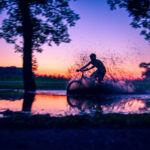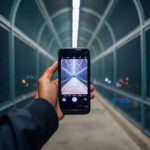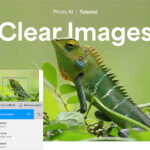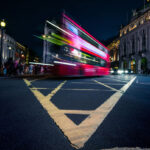Photographer Jana Williams takes us outdoors to shoot a headshot session using natural light and in the process shares some simple tips to improve our headshots:
1. Use a handheld light meter
If you’re a natural light photographer, this is one investment that’s guaranteed to give you returns for a really long time. When using a hand-held light meter, such as the one that Williams is using, point the white dome thingy face forward and held against a dark area of the frame.

The proper way to use a hand-held light meter
Dial in the aperture and ISO values that you have set on your camera and the light meter gives you the shutter speed that’s going to give you a good exposure.
1. Set your aperture to f/2.8
Williams suggest using an aperture of f/2.8. That’s what she sets on her 85mm lens. This allows her to get features like the eyes sharp with a slight bit of background blurring. This might sound a bit too authoritative; you’re free to change it around according to your needs. This is neither right nor wrong, just one way to shoot headshots.
2. Set the right ISO
Williams set the ISO on her camera at 250. Why? Because it’s overcast.
3. Pick the right lens
Picking the right lens is imperative. Williams’s go to lens is the Canon 85mm f/1.8. It’s fast, sharp, and cheap. Couldn’t ask for anything better if you’re just starting out.
4. Use a reflector
Use a reflector or white board, not only for some additional light but also to serve as the catchlight in the model’s eyes.
5. Pose

Posing is every bit as important as getting the camera settings right.
Headshots are typically three-quarters up, so a little bit of posing can help. Here, Williams focuses on the model’s hands. Tucking them inside the pockets of her jeans gets a nice shape going.

Sample Poses to Use for Head Shots
And, finally, when you have everything going for you, milk it. Get horizontal and vertical shots and every other perspective that you think you can use. There’s nothing worse than getting everything perfect and then walking away with just a couple of frames.
Like This Article?
Don't Miss The Next One!
Join over 100,000 photographers of all experience levels who receive our free photography tips and articles to stay current:






Hi, over all a pretty good tutorial. You say you don’t have an assistant so you brought a “light card”, a reflector, but you don’t use it, as evident by you moving around so much. So what was the point of that?
Jim, a good light meter, properly used, will provide the most accurate exposure even with the best cameras. The camera light meter can be easily fooled. The problem i see in this video is that Jana is standing between her subject and the light source and wearing a white shirt, which can potentially affect the incident light reading.
Really can’t believe in this day and age that you’re suggesting the use of a light meter!